
Related
Top stories






More news


Marketing & Media
Ads are coming to AI. Does that really have to be such a bad thing?













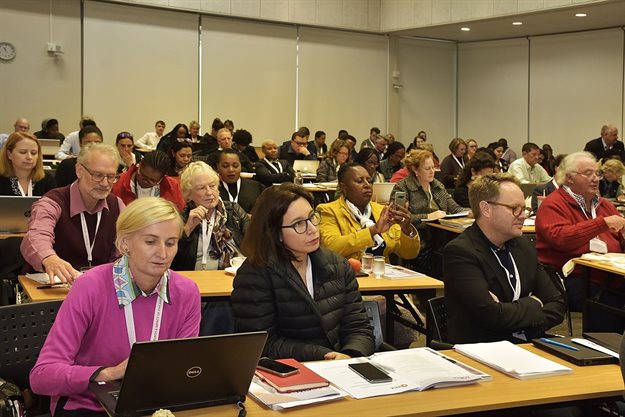
Sarah Rennie, chairperson of IPASA, welcomed delegates while setting the tone of the conversation for the rest of the two-day event. Rennie called for greater collaboration from all sectors of society: "We need hope for our future in order to build, commit, create, imagine, and reinvent the very many multiple solutions that we need for our current problems, and we need trust because, ultimately, everything we do is a collective endeavour, and so we have to have some trust in each other."
IPASA is a voluntary association of independent philanthropists, private foundations and other organisations associated with philanthropy. The organisation aims to contribute to a learning agenda, enabling thought leadership among its members, collaborating and building a culture of giving among South Africans.
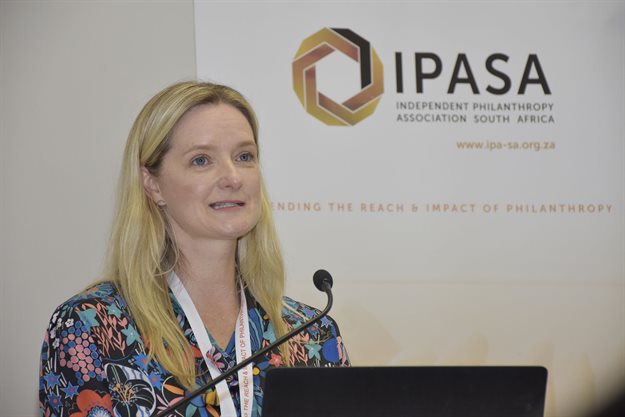
Rennie encouraged delegates to use the new ideas shared and information gained from the symposium as an opportunity to challenge their current views and shape their future thinking on the role of philanthropy in SA. She then handed over the podium to Professor Wim de Villier, vice-chancellor of the University of Stellenbosch.
De Villiers emphasised the importance of achieving social cohesion for the country and the higher education sector, noting the crucial role that philanthropy has to play in this endeavour. He explored the continuous pursuit of financial sustainability at universities and what they ultimately hope to achieve: "[Social cohesion] is an absolutely crucial cause and it resonates deeply with us at Stellenbosch University.
"It's also important because at a certain point in our history, Stellenbosch University was part of a system that drove people apart, and precisely for that reason we are now doing our bit to bring all of us together, thereby effectively promoting social cohesion," he said.
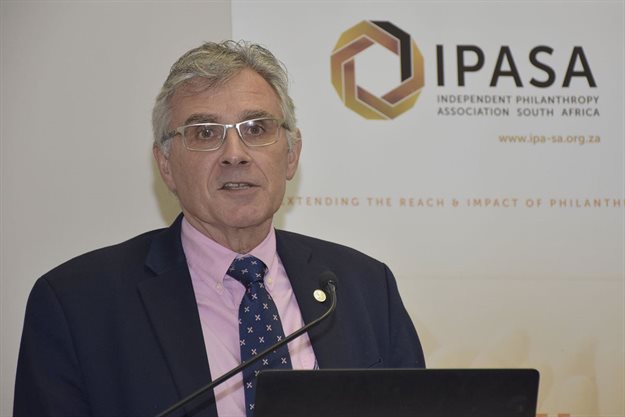
Acknowledging that the institution is still on its transformative journey, De Villiers highlighted that it is committed to democracy, human rights, and social justice, and developing a more inclusive, integrated academic community.
Facilitating the symposium was Judith February, senior research associate at the Institute for Security Studies, who implored delegates to seek a definition of social cohesion that's more than just a buzzword. This as the sense of urgency in South Africa is palpable for a more cohesive society considering the multiple crises we currently face.
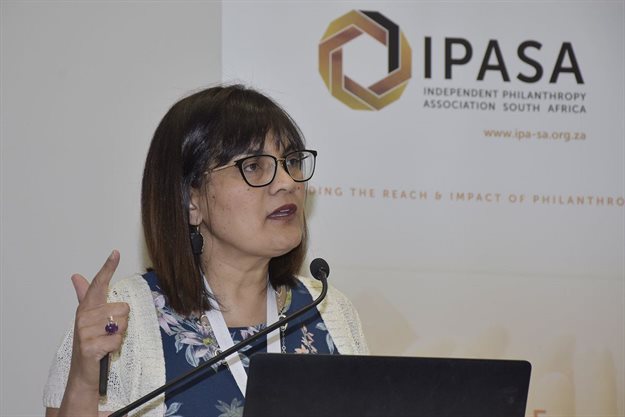
"We say almost flippantly that we face the triple challenge of poverty, inequality and unemployment. Yet the numbers are sobering and staggering. There are 6.7-million people unemployed - 29%. That is simply unsustainable. Inequality is high, which is far more worrying than ever before.
"The gap between rich and poor simply keeps increasing and there's no end in sight it seems for the challenges that we face. The cleavages of race persist. 46% of African black people are unemployed while 9.7% of white people are. Youth unemployment in South Africa is at 52%, while 30.6-million South Africans live in poverty... We are often at odds with one another and our divisions threaten this very precarious social compact," she said.
Opening speaker Professor Jonathan Jansen, distinguished professor in the Faculty of Education at University of Stellenbosch, then gave an animated presentation on how South Africa's culture of giving needs to change in order to build much-needed social cohesion, emphasising that the biggest hurdle to achieving this is the pervasive inequality that persists in the country.
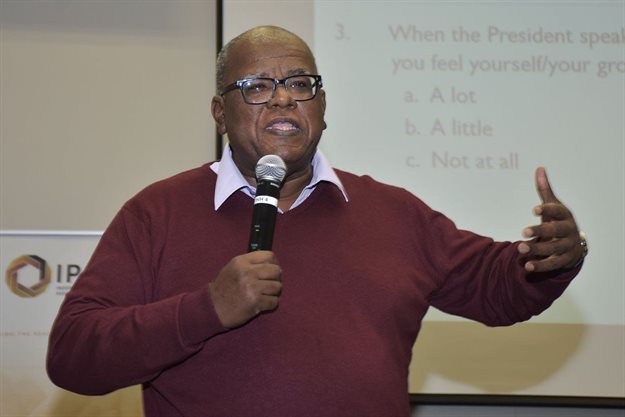
Social cohesion is imperative to addressing the deep-seated issues that divide South Africans, he said, especially in a country as unequal as ours. He believes, however, addressing these issues requires a very different way of thinking about the act of giving, referring to the Biblical parable of the lost sheep to highlight how the logic of the 'good shepherd', in searching for his one lost sheep and rejoicing in finding it, is counter-cultural to South Africa's culture of giving.
"It goes against the logic of the politician. It goes against the logic of the middle classes. It goes against the logic of the privileged. It goes against the logic of the church," he exclaimed, "which is, 'I take care of my own, and then I may think about you if I've got a few cents left'."
"The logic of the shepherd is not to celebrate those that you have, but those who didn't make it. It implies a completely different thinking from the way we give, both in our personal capacities and as organisations."
Jansen annually gives away a portion of his salary for students to attend university, largely because of his upbringing: "I do it not only because I know it is more blessed to give than to receive but because I know I also wouldn't be with you here today if somebody didn't pay R20 for my registration to go to university to study. My parents didn't have the money, and therefore within me is a logic that says I must make sure that others succeed, even if it is to the detriment of my own family."
"If the ethics of the shepherd governed giving, whether it is from the state, families, individuals, or philanthropic organisations, we'd have a different country," he said.
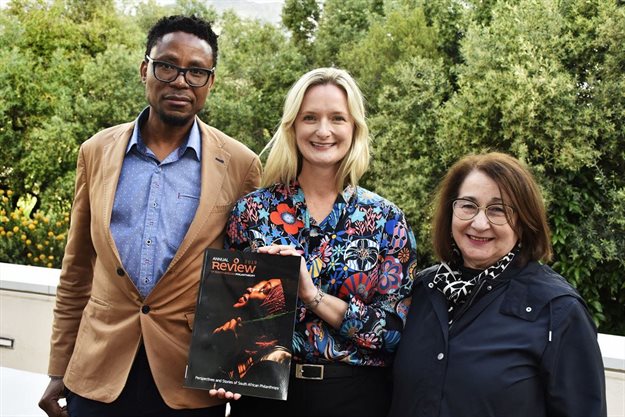
The new Annual Review of South African Philanthropy was launched during this year's symposium and aims to stimulate a culture of giving through showcasing role models in philanthropy.
